| Russia in facts and figures |
Area: Russia is the biggest country in the world, covering an area of more than 17 million square kilometres.
Local Time: Russia has 9 time zones, So, when it's 12:00 in Moscow (UTC/GMT+3), it's 04:00 in New York, 09:00 in London, 10:00 in Berlin and 20:00 in Sydney.
Population: Russia – 141,9 million, St. Petersburg - 4.6 million, Moscow – 10,54 million
Ethnic groups in Russia: 81.5% Russian, 3.8% Tatar, 3% Ukrainian, 1.2% Chuvash, Bashkir 0.9%, Belarusian 0.8%, Moldavian 0.7%, other 8.1%.
|
 |
Borders: With borders stretching from Europe to Asia, Russia has many neighbours. Norway and Finland border the north-west. Estonia, Latvia, Lithuania, Poland and the Ukraine lie to the west. The south borders Georgia, Azerbaijan and Kazakhstan, and to the south-east, lie China, Mongolia and the Korean People's Democratic Republic. In the Far East, Alaska lies across the Bering Strait, and Japan, across the Sea of Japan.
Lakes: Russia's Lake Baikal, in Siberia, is the world's deepest lake. Europe's largest lake - Lake Ladoga - is north-west of St. Petersburg.
Rivers: Russia's longest river, the river Lena, flows for 4,400km through Siberia.
Highest point: Mt. Elbrus 5,642m (Caucasus). |
| Electricity |
| The electrical currant in Russia is 220 volts AC, 50Hz. Most sockets are standard European size with double round-pin plugs. If you are bringing any british appliances, bring a Euro adapter just in case. |
| |
|
|
| Money |
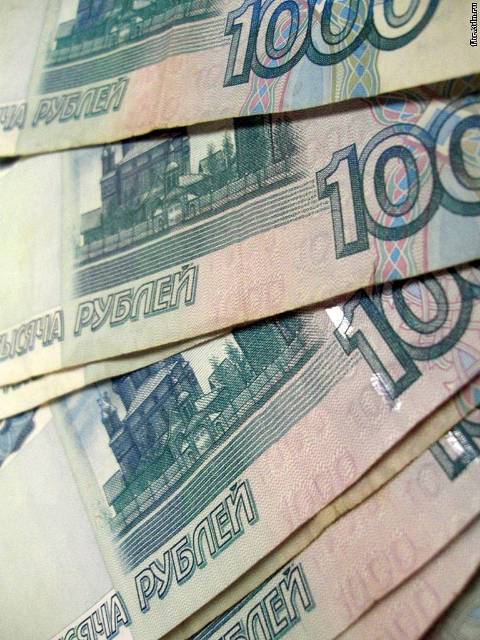 |
The national currency is the rouble (Rbl). Banknotes come in denominations of 10, 50, 100, 500 and 1,000 and the 5,000 note and there are 1, 2, 5 and 10Rbl coins. There are 100 kopeks to every rouble, and kopeks come in denominations of 1, 5, 10 and 50. Officially, it’s illegal to pay in dollars or euros. In places with a lot of foreign customers prices are sometimes written in 'y.e.', which means fixed unit. This refers to the exchange rate between the rouble and the US-dollar, the rouble and the euro, or the rouble and something in between the dollar and the euro. ATMs (bankomaty), can be found at most metro stations, banks and large hotels. Credit-card use is still in its infancy and not all establishments can take them. Always have cash as back up; it’s not uncommon for cash machines to be out of order, out of money, or, on occasion, frozen. |
| Weights and measures |
| Russians are a specific bunch, and in a restaurant or bar, you'll always know exactly what you're getting. Russia uses the metric system, and on menus, next to the column of prices, there is usually a column of measurements in grams. Spirits and wine are also sold in grams. A standard shot of vodka is 50g, and a glass of wine is 150 - 200g. Menus often show prices for meat and wine per 50 or 100g, so be sure to check carefully when you order. Beer is sold in glasses; a big glass is half a litre, and a small glass 250-330ml. |
| Climate |
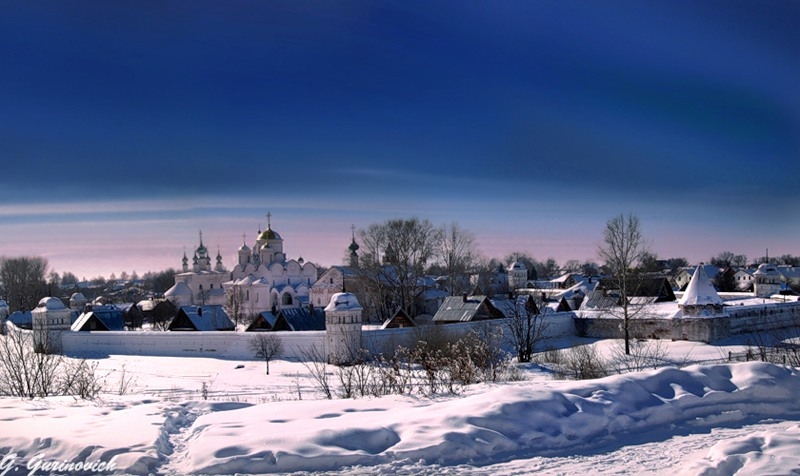 |
January and February are usually the coldest months of the year and the weather is likely to be harsh and erratic. One day it can be -20˚C, and the following day, it might be 0˚C. If you’re planning on spending time outdoors, make sure that you have enough warm clothes (don’t forget to wear extra socks!) Also keep in mind, on very cold days it may even be sunny. There can be beautiful blue sunny skies in the middle of the Russian winter! |
| In March, the weather starts to get a little warmer, although the average temperature is still hovering around 0˚C. The nights are still frosty but as the days become longer and longer, it brings the feeling of spring. April still carries the threat of snow and freezing temperatures but it is also possible to enjoy the occasionally blazing sun. Average temperature 0-12˚C. May brings the arrival of White Nights to St. Petersburg and the northern regions, when the days start becoming extremely long! It is a wise idea to carry an extra jumper with you just in case of unpredictable weather. The temperature in May can be anything between 0 and 22˚C. |
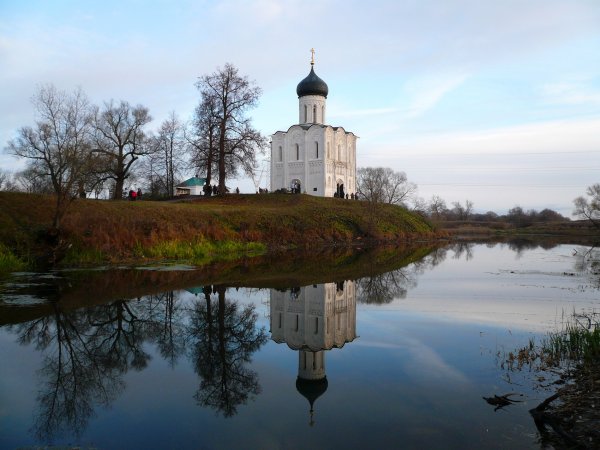 |
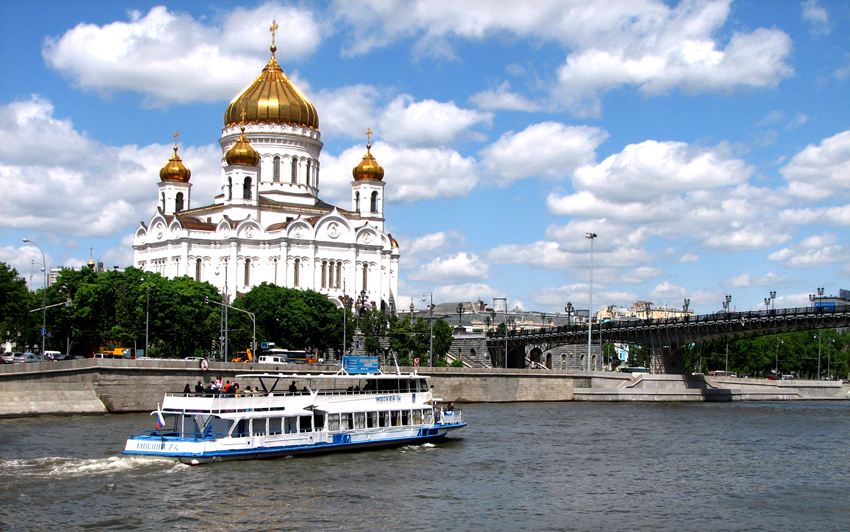 |
June’s weather is lovely, with temperatures of 10˚C at night and hovering around 22˚C by day. The longest day of the year is 21 June when the sun hardly sets at all. The weather in July and August is very summery, long sunny days to spend outside, sitting in parks or strolling the streets. Average temperatures are around 25˚C in the day, but can drop to a mild 15˚C and rise to 35˚C. The blazing sun is such a treat, so don’t forget the sun lotion!
|
September brings the colours of autumn, a beautiful sight which compensates for the shorter days. During the days the temperature is between 12 and 22 ˚C. Make sure you take advantage of these sunny days by travelling to one of the parks outside Russia's big cities. October temperatures are typically around 0 and 15˚C. Take an umbrella or a raincoat with you so you don’t get caught out in a rain shower. November sees the weather becoming quite cold. And there is a good chance of seeing the first snowfalls in this month.
|
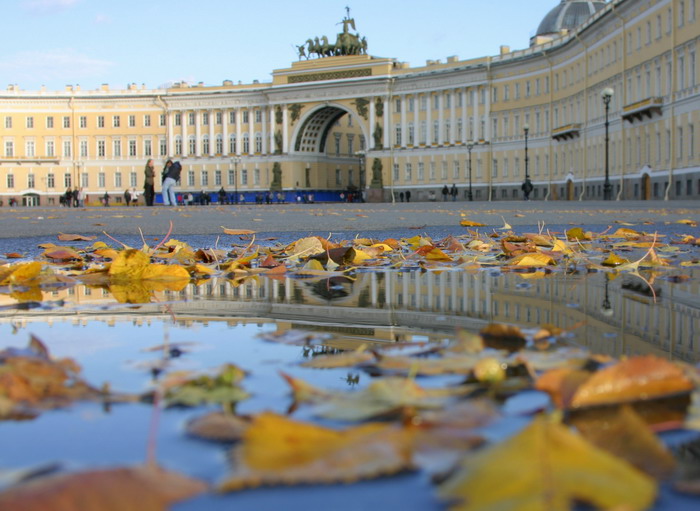 |
| Health and safety |
| Russian drivers are your biggest danger, so cross the road carefully, and don't assume cars will stop just because you’re on a zebra crossing. Other dangers include dodgy electrical fittings, temperamental gas stoves, slippery ice, falling ice, uncovered manholes and absinthe. Russia as a whole is not friendly to disabled people, although some hotels do care for them. The Hermitage Museum has a special entrance. But generally spoken high curbs and steps are the rule. The public transport system unfortunately lacks accessibility for disabled people. For travellers with visual and/or hearing difficulties: Russian drivers are no gentlemen, so please be careful. St. Petersburg's water is treated with chlorine, but the authorities say there are large traces of heavy metals and that bacteria and parasites like Giardia lambia are still possible risks. If you fill up the bathtub, you'll get a sense of what you're dealing with. So stick to bottled water, and if you must drink from the tap, give it a good boil first. The same passes for most other Russian cities - play it safe and stick to boiled or bottled water. |
| Alcohol |
 |
Stereotypes about Russian drinking habits are all true, so if you somehow find yourself enmeshed in a vodka session with locals, don’t try to keep up. They’ve had way more practice. Vodka is cheap and there are different brands. If you want something more exotic, try Nemiroff - Ukrainian pepper vodka.
Russian pivo (beer) is good stuff, which is why Russians consume more beer than any other alcoholic drink.
No Russian celebration is complete without Sovietskoe Shampanskoe (Soviet Champagne), the national party drink. A bottle of this bubbly, which some like more than the real French stuff, will set you back only 3-5 euros.
|
| 24 hours |
| One of the good things about Russia is that it is never difficult to find a place to get food or drink, even in the middle of the night, whether it is a simple shop or an expensive night club. If you see the 24-sign (or 25-sign) it means this place is open around the clock! Even experienced global travellers are astonished at the number of supermarkets and kiosks open all night long. |
| Queuing |
Russians have rules for queuing? It may seem improbable when confronted with the Russian populace enmasse inside the metro but outside public transport Russians adhere to queuing rules strictly. The modus operandi involves fronting up to the dispersed group and asking ‘Kto pasledny?’ (Who’s last?) To which someone will (hopefully) answer ‘Ya’ (meaning me). Now that you’ve identified the person in front of you, all you need to do is wait for your turn. Unwritten rules include telling the person behind you that you are just nipping out for a cigarette and will be back in five minutes. Contrary to western understanding, you don’t lose your place by not waiting around, you can also just come back later.
|
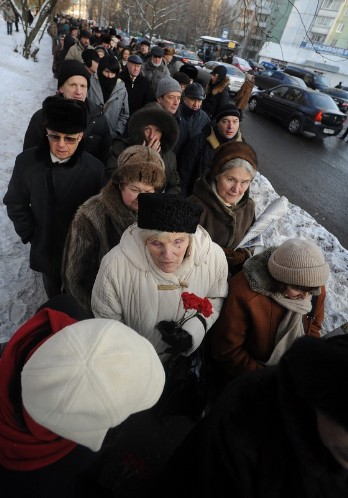 |
| Habits |
No shoes in the house! When entering a Russian house-hold, remember to take your shoes off as soon as you get inside. Usually your host will offer you slippers. In terms of greetings, men shake hands with each other on meeting and if you’re a woman and you hold your hand out to a man, don’t be suprised if it is not shaken but kissed. Chivalry is alive and kicking! For many women this is heaven, although for feminists it may be hell. It’s also seen as very rude to blow your nose loudly in public.
|
